(BALTIMORE, MD) – The Maryland Zoo in Baltimore threw a wild birthday party today for the youngest member of its chimpanzee troop, Maisie, who turns two years old.
Maisie and her friends were treated to special animal-friendly decorations, enrichment activities, and birthday treats. The event also served as a fundraiser that raised money to care for the Zoo’s chimps.
The Maryland Zoo is nationally recognized for its ability to breed and raise baby chimpanzees, and for deploying a “fission / fusion” method of social interaction that mimics the way chimps interact in the wild.
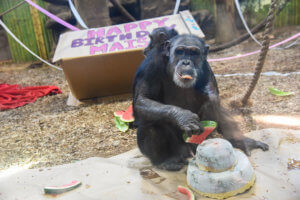
Raising Maisie was a labor of love for the Maryland Zoo keepers.
“Our team worked around the clock to give Maisie everything a chimp mother would normally provide,” said Pamela Carter, the Chimpanzee Forest Area Manager at the Maryland Zoo. “We wanted her to grow and progress before carefully introducing her into our larger chimp troop once she was ready.”
Maisie was born in the Oklahoma City Zoo in the fall of 2020 and needed to be transferred when it became clear her birth mother was not caring for her properly. She was sent to the Maryland Zoo, where chimpanzee experts have experience successfully raising surrogate chimps and integrating them into the troop.
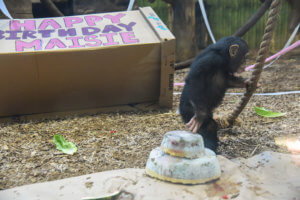
Upon arrival, the as-yet unnamed infant chimp received extensive care from the Zoo’s Chimp Forest team. They worked in three shifts around the clock to provide the baby constant care, including formula feeding every three hours. They also had to ensure Maisie got adequate sleep and playtime to help her grow and strengthen her muscles.
Because Maisie arrived during the pandemic, the only people allowed to be near her were her keepers, who were following strict quarantine protocols. The public was introduced to the baby chimp through virtual encounters and social media. In October of 2020, a public contest was held and the name, Maisie (which is a traditional Scottish name meaning “pearl”), was chosen among a list of possibilities.
Chimpanzees (Pan troglodytes) are classified as endangered on the International Union for the Conservation of Nature’s (IUCN) Red List. One of the greatest threats to the wild chimpanzees is loss of habitat from commercial logging, agriculture, and fires. Poaching and disease also put the wild population at risk.

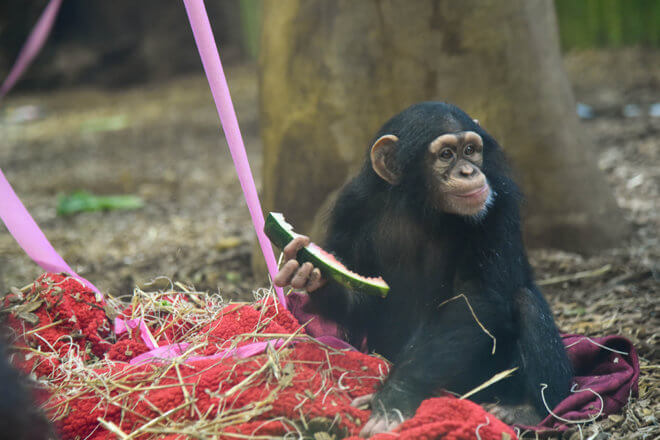
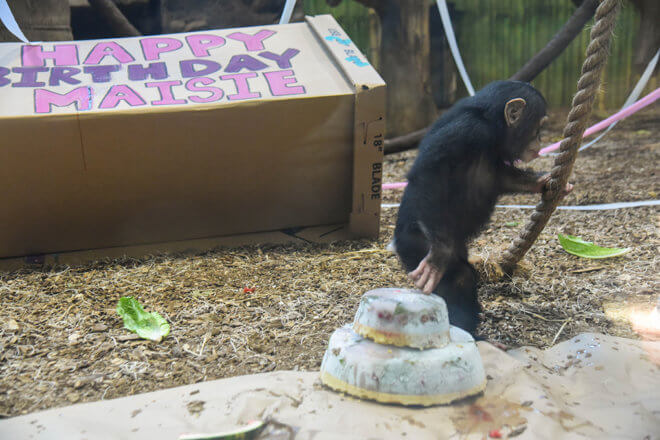
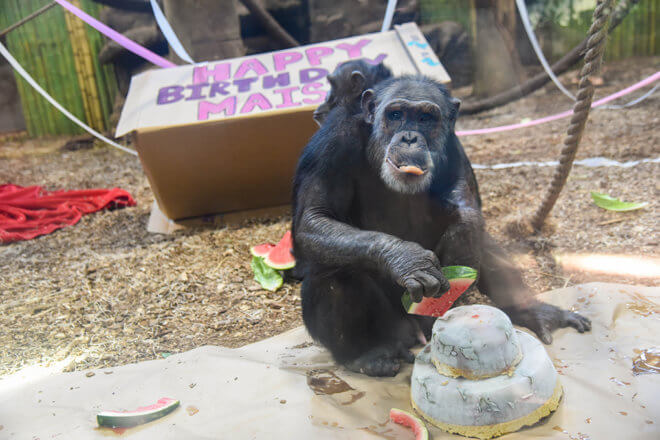
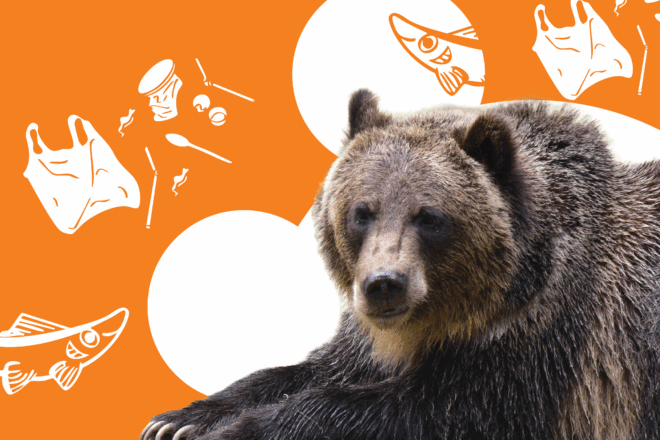
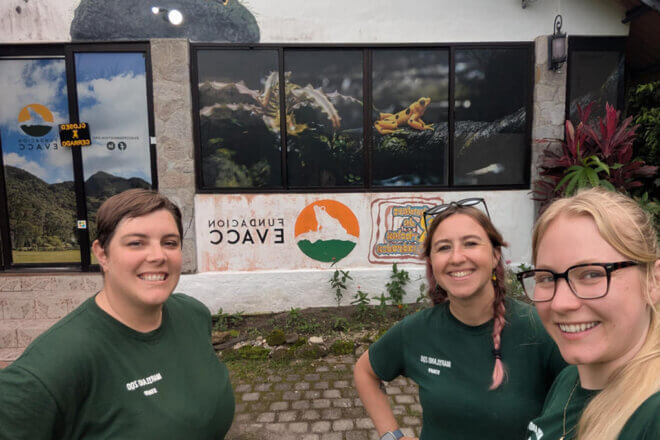
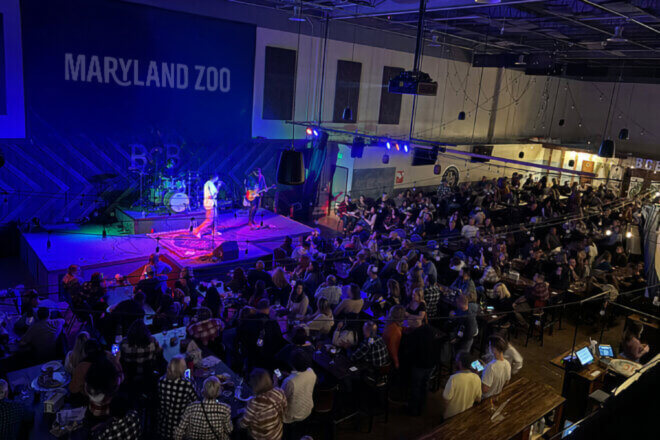
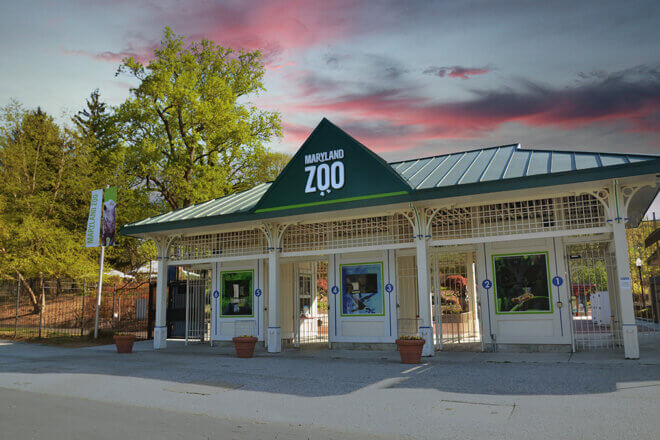
Share this article